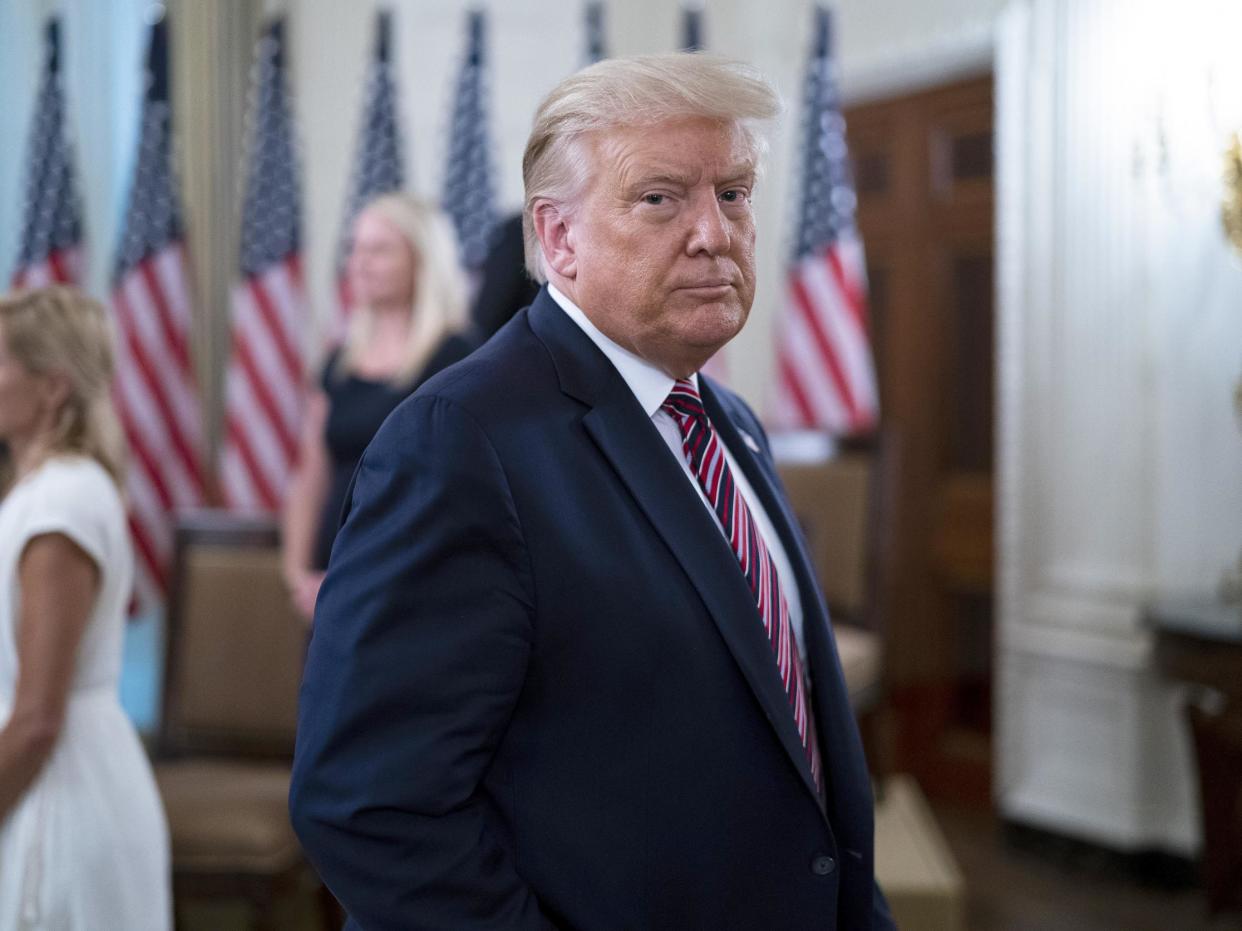Trump will claim a diplomatic victory – but the one thing the UAE-Israel deal does is make Middle East diplomacy ever more complicated

As with much diplomacy, projection is often the thing that matters most. The announcement by Donald Trump that the US has helped broker a deal that involves the "full normalisation" of ties between the United Arab Emirates and Israel falls into this category.
That is not to say it isn't historic if the deal is as advertised. Jordan was the last Arab nation to accept ties with Israel, back in 1994. And before that, only Egypt made a peace deal with Israel - in 1979. Mauritania recognised Israel in 1999, but later ended relations in 2009 over the conflict in Gaza at the time.
So, it is a diplomatic boost for Trump before a presidential election in November that is looking increasingly tough, against an opponent in Joe Biden that has had his fair share of foreign policy experience as vice president to Barack Obama. It is also a fillip for Trump's son-in-law Jared Kushner, who had been placed in charge of the Middle East brief and whose plans for peace in the region have raised the hackles of a number of Arab nations.
Israel's prime minister, Benjamin Netanyahu will also also welcome a diplomatic win in conjunction with his long-term ally in Washington. Israel's country's coalition government, formed after a number of failed elections, is not the most stable and Netanyahu himself has faced falling popularity over his handling of the coronavirus pandemic.
For the UAE, the deal allows them to make a splash on the international stage amid an increasingly fraught situation in the Middle East. Allied to the US, there appears little doubt that allowing Trump to announce the deal will strengthen ties there.
The UAE relied on white-collar Palestinians in creating its nation and has maintained the stance, along with much of the Arab world, that Palestinians should be allowed to create a state on land seized by Israel during the 1967 war. Earlier this summer, a deal like the one announced today appeared a remote prospect, thanks to Netanyahu announcing plans - supported by the White House - to annex parts of the occupied West Bank. At the time United Arab Emirates’ ambassador to the US warned in an Israeli newspaper that such a move would “upend” efforts efforts to improve ties with Arab nations.
Netanyahu has gone relatively quiet on the idea of annexation, as has the White House and this deal will likely kill that proposal. But the Israeli leader had already seemed to be going cold on the idea, so the question arises of what might the UAE have got to sign this deal? However, Netanyahu will have certainly have faced a backlash from those within his own Likud party if he had publicly backed away from annexation without the back-up of a deal like this.
Palestinian officials will certainly not be happy, with annexation being against international law they will see no need for a deal to be stuck.
Beyond this new agreement, there have been Israeli efforts in recent years to thaw ties with the UAE. Netanyahu has a habit of overestimating the closeness of such ties compared to the reality on the ground, but recent cooperation over how to deal with Covid-19 have apparently proved fruitful.
Abu Dhabi Crown Prince Mohammed bin Zayed Al Nahyan shares similar thoughts to Netanyahu on the influence of Iran across the region (with another close UAE ally, Saudi Arabia, also wishing to combat Tehran's influence) as well as distrust of groups like Hamas, who control the Gaza Strip.
How these new relations will play out is unclear, but one thing is for sure – it adds another complicating factor to a region already full of them.
Read more
UAE formally recognises Israel in historic move, Trump announces
Arrests and clashes follow anti-Netanyahu protests in Israel
Anti-Netanyahu sentiment and coronavirus spread in Israel
Netanyahu misses target date to start annexation of West Bank

